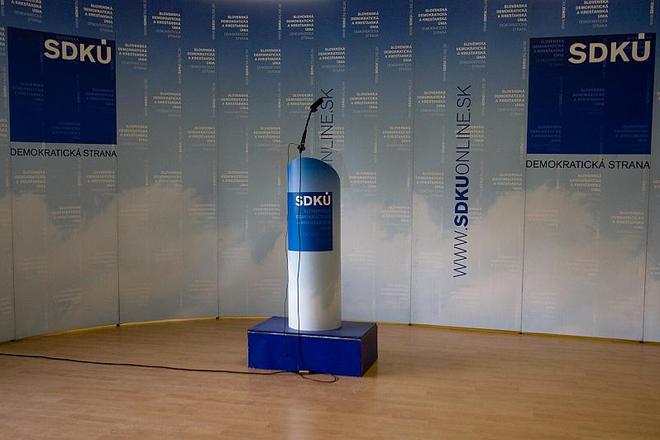THIS HAS been the week of make-believe, of as-ifs, of pretending, in short, of "akože". PM Fico is "akože" appalled by the untransparent financing of the opposition SDKÚ, which two election periods ago used a bamboozling network of Swiss, British, and off-shore companies to pump money into the party and even now has trouble explaining where the cash was coming from. Yet in reality, Fico must be used to much worse since his own coalition can’t explain why hundreds of millions of euros from state contracts are ending up in shady firms with ties to coalition politicians.
SDKÚ boss Mikuláš Dzurinda is "akože" leaving the helm of his party. But his decision not to run in the upcoming parliamentary elections doesn’t change a thing about the fact that he is staying on as SDKÚ chairman and there are no signs that he actually plans on saying goodbye to the political clout he currently relishes and enjoys.
Dzurinda’s decision to withdraw his candidacy "akože" isn’t an admission of guilt or defeat. But it’s impossible to find any other rational explanation. Dzurinda’s claim that he needs more time and energy to fight off Fico’s dirty and unjustified attacks just isn’t that convincing.
The SDKÚ is "akože" looking for a new leader. However, Ivan Mikloš, the man most likely to take over as the party’s number one candidate for parliamentary elections, is not only Dzurinda’s political twin but is also implicated in all the same political blunders from the past. If the SDKÚ chooses Mikloš, it will not only confirm that the party will stay firmly in Dzurinda’s hands, but will make it just as vulnerable to outside criticism as it has been up to now.
Former presidential candidate Iveta Radičová, Mikloš’ rival for the top party position, is not tarnished by the past mistakes of the SDKÚ. Yet she is relatively new on the scene, having only formally joined the party after the 2006 elections, and, last year, decided to leave parliament after being caught registering a vote for a colleague - a breach of legislative rules. That makes her position within the party weak, so that, even if she does defeat Mikloš in the party primaries, it will still be Dzurinda and Mikloš calling the shots after the election.
The SDKÚ is right in assuming that to regain credibility, lead the opposition, and defeat Fico, it needs new leadership. But will the voters be pleased if the change is just "akože"?


 >It is not clear who will lead SDKÚ into the June parliamentary elections. (source: Sme - Vladimír Šimíček)
>It is not clear who will lead SDKÚ into the June parliamentary elections. (source: Sme - Vladimír Šimíček)